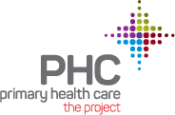Staying On, Stopping, and Restarting PrEP
This post was co-written by The Project’s Clinical Director, Becky Johnson, ARNP, and Prevention Specialist Noah Beacom. The following does not constitute medical advice. Contact your provider if you have questions.
During the current COVID-19 pandemic, many people are considering or already have stopped their PrEP regimen because they have decided to stop having sex for the time being. Public health experts do recommend limiting your sexual partners while the risk of acquiring or transmitting COVID-19 is still high. The New York state health department, for example, has a list of recommendations for having sex or, as the case may be, not having sex right now.
If you’re among the folks who have decided to not have sex for awhile, you might decide to stop taking PrEP, or might be curious about doing so. We’ve developed a quick guide to stopping and restarting PrEP.
Is it okay to stop taking PrEP?
We recommend that, even if you are not having sex right now, you continuing taking PrEP. Why? Life happens and we might find ourselves having an unplanned sexy moment. Continuing to take PrEP gives us that reassurance that we are protected from HIV for those times where things get steamy.
Otherwise, the short answer is “yes,” it is okay to stop taking PrEP if you’re not having sex or not engaging in “high-risk” behaviors. Behaviors that put you at additional risk for HIV include having vaginal or anal sex, or sharing needles when injecting drugs. If you plan to continue to have vaginal sex, anal sex, or will share supplies when injecting drugs, you should keep taking PrEP.
If you decide not to have sex, or decide only to engage in low-risk behaviors such as oral sex or kissing, it’s okay to take some time off PrEP. Some providers prefer you let them know before stopping medication, others are okay with you making a well-informed decision on your own. If you’re not sure which your provider prefers, it’s okay to reach out and ask.
It’s important to continue taking PrEP for at least awhile after your last potential HIV exposure. The safest course of action would be to continue taking PrEP for at least 28 days after your last exposure. There is no information regarding less than 28 days of dosing after vaginal sex. For gay, bi, or other men who have sex with men, there is some evidence to suggest that two days may be long enough if pre-exposure doses were also taken. If you have concerns about how long to keep taking your medication after your last potential HIV exposure, reach out to your provider.
There is some misinformation that if you start and stop PrEP, your body will build up resistance to the medication and thus decrease its effectiveness. This is not the case. PrEP can safely be stopped and restarted without any resistance building up to the medication.
Can I just take less PrEP?
Although they are NOT approved by the Food and Drug Administration (FDA), there are several alternative dosing strategies that providers sometimes recommend. It’s important to reach out to your provider before changing how often you take PrEP. The most well known dosing strategy is known as “event-based dosing” or “2-1-1.” It has only been studied in men who have anal sex with other men. You can read more about this dosing strategy on the San Francisco AIDS Foundation‘s website or through the World Health Organization‘s website.
I’m ready to have sex again! How do I restart taking PrEP?
Great! If you’re ready to start having sex again, the best course of action is to get tested for HIV and take PrEP for seven days before having sex. If for some reason you did acquire HIV while not taking PrEP, taking PrEP again can make the HIV already in your system build up a resistance to the medication itself (known as either Truvada or Descovy). Taking an HIV test will help eliminate this risk. Taking PrEP seven days before sex will make sure there is enough medication in your system to prevent HIV from taking hold in your body if you are exposed to it.
Ummm, I had sex while I wasn’t taking PrEP. What do I do?
We get it, life happens, and that is totally OK. If you think you might have been exposed to HIV while not taking PrEP, you may be a candidate for Post-Exposure Prophylaxis (PEP) which is a 28-day round of medications that can stop an HIV infection from taking hold in the body. You must begin PEP within 72 hours of the potential exposure, and the early you start it, the better.
Can you summarize this for me?
It’s okay to stop taking PrEP if you plan not to have sex for awhile. Before you start taking PrEP again, take an HIV test again and wait at least seven days after your first dose to start having sex again. Call you provider if you have any questions.
